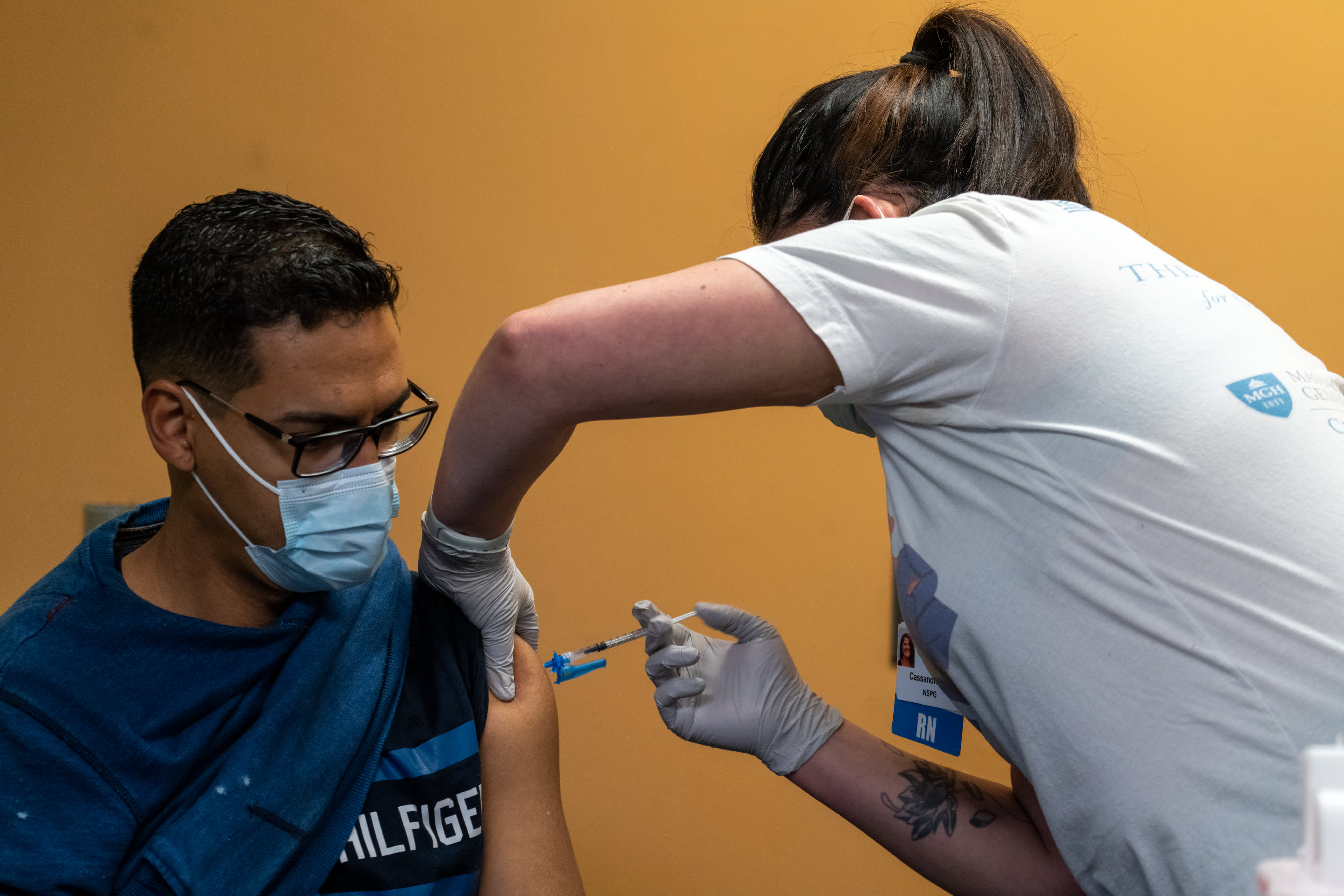A new hybrid COVID variant, XE, might be the fastest-spreading strain yet, according to preliminary research, but studies are underway to determine the exact contagiousness of the variant.
XE was first detected in mid-January in the United Kingdom, where more than 600 cases have been reported since then, according to the UK's Health Security Agency.
The XE variant is a recombinant, as it is comprised of genetic material from two other strains, which in this case are BA.1, the original strain of omicron, and BA.2, known as "stealth omicron."
Early growth rates of the variant weren't significantly different from BA.2, the UK Health Security Agency initially said. However, in an update on March 25, health authorities revealed more recent data showed XE had a growth rate of 9.8% above BA.2.
The World Health Organization released similar information, citing estimates that show XE is 10% more transmissible than BA.2. However, those findings require further confirmation, the agency noted.
BA.2 was previously identified as the most transmissible variant as it spreads about 75% faster than BA.1, according to health officials.
According to the Chicago Department of Public Health, a handful of XE cases have been reported outside the U.K., including in the U.S., but none have surfaced in Chicago or Illinois.
A total of 1,663 omicron cases have been detected as of March 15 in Chicago, but none are of the XE variant, as shown by surveillance data from the Regional Innovative Public Health Laboratory at Rush University Medical Center.
CDPH said in an email it continues to closely monitor circulating variants, and is part of regional and national surveillance efforts.
Feeling out of the loop? We'll catch you up on the Chicago news you need to know. Sign up for the weekly Chicago Catch-Up newsletter.
In the U.K., health officials are monitoring two other recombinants: XD and XF, which consist of genetic material from the Delta and BA.1 strains, as well as the XE variant.
U.K. health authorities previously said there was "insufficient evidence to draw conclusions about growth advantage or other properties of this variant," but addressed initial reports about its infectiousness.
"This particular recombinant, XE, has shown a variable growth rate and we cannot yet confirm whether it has a true growth advantage," stated Susan Hopkins, chief medical advisor for UKHSA.
Recombinant variants themselves, however, are not out of the ordinary, according to health officials.
"Recombinant variants are not an unusual occurrence, particularly when there are several variants in circulation, and several have been identified over the course of the pandemic to date," Hopkins said. "As with other kinds of variant, most will die off relatively quickly."
According to the Centers for Disease Control and Prevention's website, XE isn't currently being monitored by U.S. epidemiologists nor has it been labeled as a "variant of interest" or "variant of concern."
WHO said it will continue to study recombinants and provide updates as further evidence becomes available.



